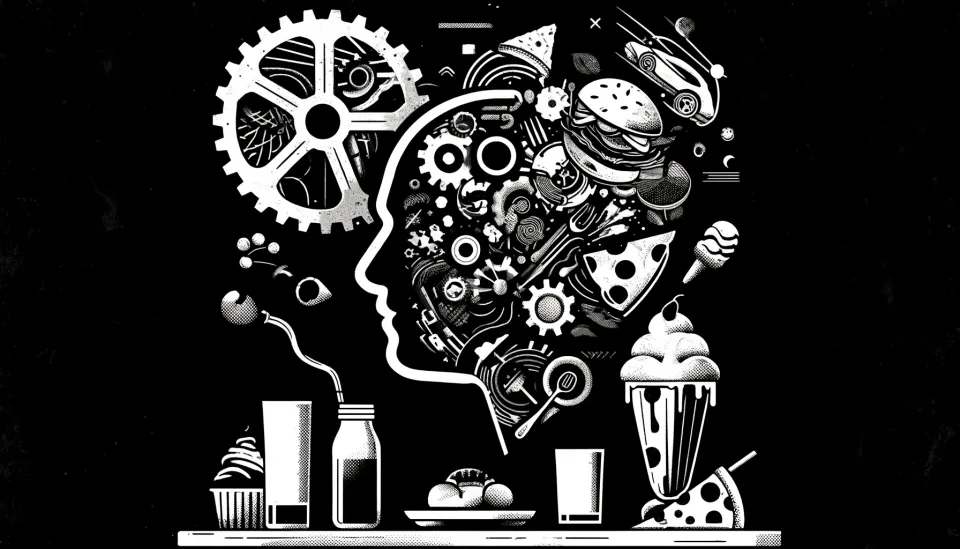Why do you eat? Two reasons mainly...

Have you ever paused to ask yourself, “Why do I eat?”
It seems like a simple question, but the answer is a bit more complex.
Let’s dive into the psychology of eating, breaking it down into two main reasons:
- homeostatic eating and
- hedonic eating.
The Intriguing Question of Why We Eat
Picture this: It’s late afternoon, and you find yourself reaching for a snack.
But wait, are you really hungry, or is something else at play? Understanding why we eat can reveal much about our habits and health.
Homeostatic Eating
Firstly, we have homeostatic eating.
This type of eating is all about balance and maintaining our body’s energy levels. Think of it as eating for necessity. Our bodies need fuel to function, just like cars need gas.
- Energy and Nutrients: Homeostatic eating provides the essential nutrients and energy our bodies need to perform daily tasks. Without it, we wouldn’t have the stamina to get through the day.
- Biological Needs: This eating is driven by our biological signals. When you’re genuinely hungry, your body is telling you it needs sustenance to maintain balance.
Imagine your body as a well-oiled machine. Just as a car needs fuel to run smoothly, your body needs food to keep going.
Hedonic Eating
Now, let’s talk about hedonic eating.
This is where things get a bit more interesting and complex.
Hedonic eating is all about pleasure and emotional comfort.
It’s why you might crave a piece of chocolate or a slice of pizza even when you’re not physically hungry.
- Cravings for Specific Tastes: Often, hedonic eating leads us to crave certain flavors, like sweet, salty, or fatty foods. These cravings are usually linked to the pleasure centers in our brain.
- Emotional Well-being: Food can have a powerful impact on our mood and emotions. A comforting meal can lift our spirits, while certain foods can remind us of happy times.
Think of hedonic eating as a treat for your taste buds and emotions. It’s not just about quenching hunger but about satisfying your senses and feelings.
Reflecting on Your Eating Habits
So, the next time you reach for a snack or sit down for a meal, ask yourself:
Are you eating to fuel your body or to satisfy a craving?
Recognizing the reasons behind your eating can help you make more mindful choices.
Reflection Questions:
- When do you find yourself eating out of necessity versus pleasure?
- How do different foods affect your mood and emotional state?
- Can you identify specific situations where you tend to eat for emotional comfort?
- How might understanding your eating habits lead to healthier choices?
By understanding the psychology behind why we eat, you can take steps towards a healthier relationship with food.
Whether it’s fueling your body or treating your senses, being mindful of your eating habits is the first step to a balanced and fulfilling life.